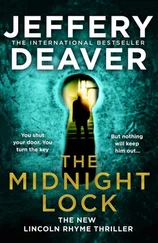Vimal Lahori had become a living reminder of the dark and perilous side of these miraculous gems, from blood diamonds in Africa, to slave labor in Siberia, to armed robberies in Belgium.
But his father would beg or bluster until someone signed Vimal on.
He was presently in his studio, looking over a two-pound piece of lapis lazuli. Vimal loved this intensely blue mineral. It was generally used for jewelry but one could find pieces large enough for sculpting, at reasonable prices. The metamorphic rock has a long history in both jewelry and art. Tutankhamun’s funeral mask featured it, and Chinese artists would carve miniature mountainside villages into vertical pieces, just as they did with jade. Lapis was first discovered in Badakhshan province of Afghanistan and is now found there, as well as such exotic places as Siberia, Angola, Burma, Pakistan and — where this particular stone had come from — Pleasant Gulch, Colorado.
He was turning the stone over and over in his hand, waiting for it to talk to him and explain what incarnation it wished to achieve through Vimal’s eager hands. Yet at the moment it was silent.
Then footsteps on the stairs.
Vimal knew the tread falls. He set down the brilliant blue stone, layered with gold pyrite, and sat on the work chair.
“Son.”
Vimal nodded to the bleary-eyed man. He reflected: must be hard work trying to pimp a whore nobody wants.
Papa was carrying two envelopes, one large and one small. Vimal glanced at them, supposing they were contracts for cutting assignments. His eyes slipped back to his father.
The man said, “I missed you last night. I was very tired. I went to bed. But your mother told me you were well. Unharmed after that incident with the man. The killer.”
Incident...
“Yes.”
“I was very grateful for that,” Papa said, then seemed to realize the absurdity of the words.
His father’s eyes were on the lapis. “Mr. Patel’s children and their families have come to town. They and his sister have held the funeral and cremation privately.” In the Hindu religion, cremation is the only acceptable way to treat the body. In India the funeral and the cremation occur at the same place — traditionally, of course, the body is burned on an open pyre. Here, the Hindu funeral rites, the Antyesti, are modified to allow for Western custom and laws.
His father added, “But they are holding a memorial at his sister’s house tonight. That’s one reason I’ve been away. I was helping with that. You will come?”
“Sure. Yeah, of course.”
“You can say something if you like. But you don’t have to.”
“I will.”
“Good. You’ll do a good job.”
Silence.
One reason I’ve been away...
Now it was time to learn of the other reason. Who was to be his new master?
Well, Vimal Lahori decided. No one would be. This was the end. He was going to say no to the man.
At last he would say no.
He took a deep breath to do so but his father handed him the smaller of the envelopes. The trembling of his hand was not so bad today. “Here.”
Vimal held back on the monologue he was prepared to deliver and took the envelope. He glanced into his father’s eyes.
The man’s shrug said, Open it.
Vimal did. He looked at what was inside and his breath stopped momentarily. He looked to his father then back to the contents.
“This is—” He actually choked.
“Yes, a check from Dev Nouri’s company.”
Payable to Vimal Lahori. Only to him.
“Papa, it’s almost one hundred thousand dollars.”
“You will have to pay tax on it. But you’ll still keep about two-thirds.”
“But...”
“The rough that you cut for him. That parallelogram.” The word came awkwardly from his mouth. “Dev sold it at private auction for three hundred thousand dollars. He was going to give you ten percent.”
A talented diamond cutter in the New York area could expect to make around fifty thousand dollars a year. The thirty that Mr. Nouri had offered for a one-day job was very generous by any standard throughout the world.
“But I said no. He and I had some discussions. He agreed, as you can see, to thirty-three percent. It’s less than an even one hundred, because he insisted on subtracting the money he’d already paid you. I thought we could not object to that.”
Vimal could not help but smile.
“Open an account, deposit it. It’s your money. You can do with it as you like. Now, I will say something else. You will be getting many phone calls. There is not a single diamantaire in the New York area that does not want you to work for them. I have heard from a number of them who would want you to apprentice to them. They have all heard of the parallelogram. Some people are calling it the Vimal Cut.”
The news was interesting — he was not a pariah — but it was also disheartening. The pressure from his father was back. More subtle, but pressure nonetheless.
Papa muttered, “You can get a job at any one of them and they will pay very well. But before you do that, think about this.” He offered the larger envelope.
Vimal removed from it a college catalog, for an accredited, four-year university on Long Island. A yellow Post-it was stuck in the middle. Vimal opened to the page, which described the MFA, master in fine arts, program. There was a track for sculpting, which included a semester abroad in Florence and Rome.
Feeling his heart stutter, he looked up to his father.
The man said, “So. I have been the messenger. The rest is up to you. You may want a different school, of course. Though your mother and I were hoping that if you do, we would prefer you become the Michelangelo of Jackson Heights, rather than of Los Angeles. But, as I say, it’s up to you, son.”
Vimal had no intention of flinging his arms around his father but he couldn’t help himself.
The awkwardness faded quickly, and the embrace lasted considerably longer than he and, he guessed, his father anticipated. Then they stepped away.
“We will leave for Mr. Patel’s sister’s at five.” He turned and started for the stairs. “Oh, and why don’t you invite Adeela?”
Vimal stared. “How did...?”
The look on his father’s face was cryptic but the message might very well have been: Never underestimate the intelligence — in both senses of the word — of one’s parents.
His father left the studio and trooped upstairs. Vimal picked up the lapis lazuli and began turning it over and over and over in his hands once more, waiting for the stone to speak.
Barry.” Rhyme was in his parlor, on the speakerphone.
“Lincoln. I’m pissed off at you, you know that.”
“Yeah? Why?”
“I was a bottom-shelf kinda guy. You turned me on to real scotch. The pricey stuff. Actually, Joan is pissed at you. Me, not so much.”
A pause.
Then Rhyme said, “We nailed him, Barry. He’s going away forever. El Halcón.”
“Jesus. I thought the case was dicey.”
“It became undicey.”
More silence.
“And we got his partner. The American.”
Rhyme could hear the man breathing.
“You have anything to do with that?”
“Not much. A little.”
Sales laughed. “Bullshit. I’m not believing that.”
“Well, believe what you want.”
“That’s the Lincoln Rhyme I know and love.” Then, diverting from the edge of maudlin, Sales said, “Hey. Talked to my sister? She had an idea. I’m getting a temporary prosthesis. Just a hook, you know. She’s going to bring the kids over and, guess what? We’ll do the Wolverine thing. They’ll love it.”
“The what thing?”
“The movie. You know.”
Читать дальше
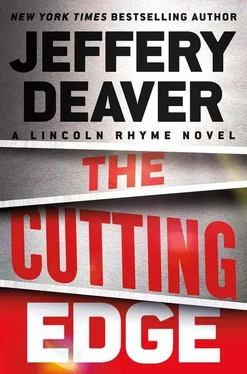


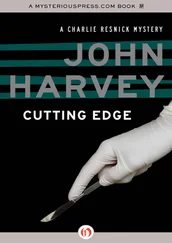
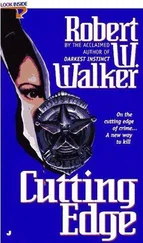
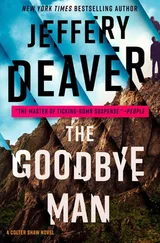
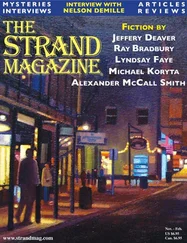
![Джеффри Дивер - Where the Evidence Lies [A Lincoln Rhyme Short Story]](/books/403782/dzheffri-diver-where-the-evidence-lies-a-lincoln-r-thumb.webp)

